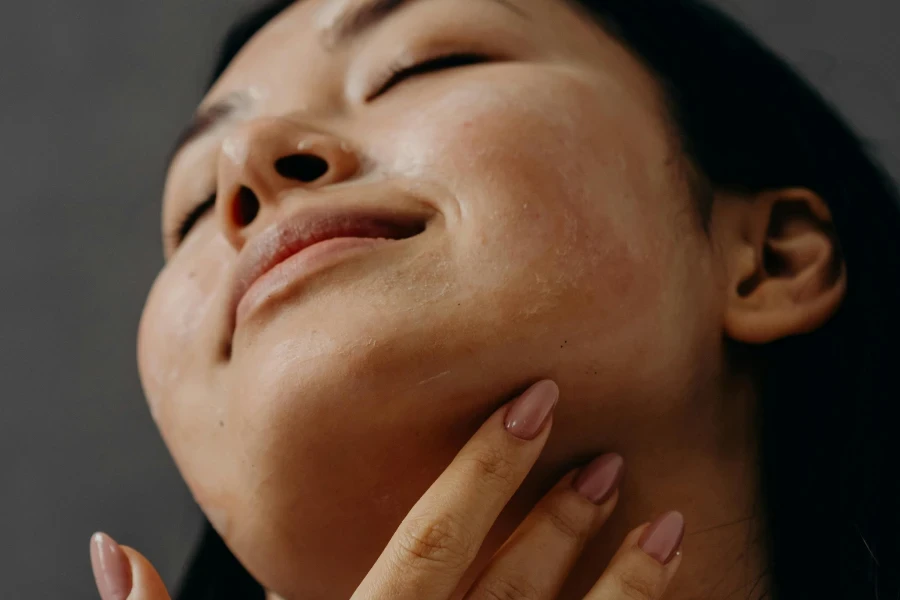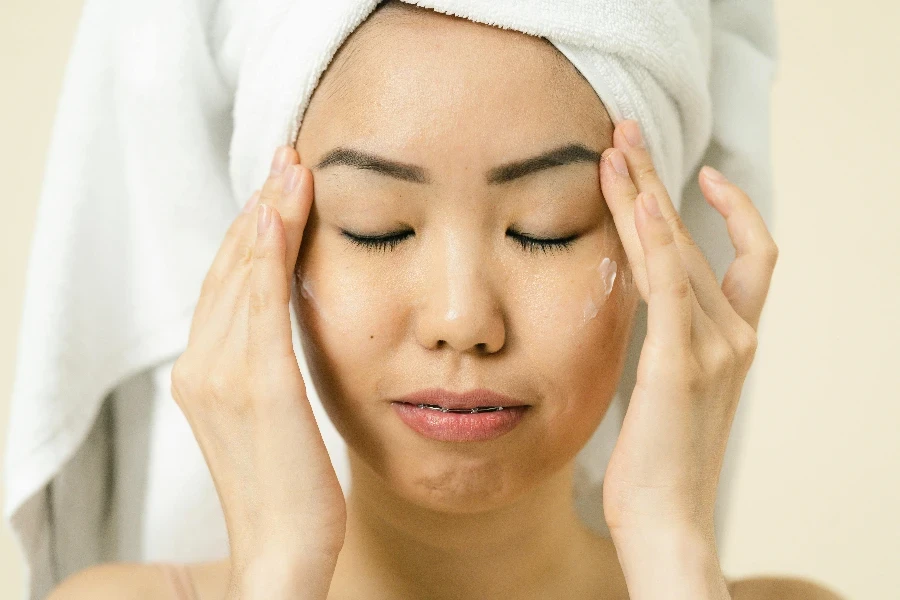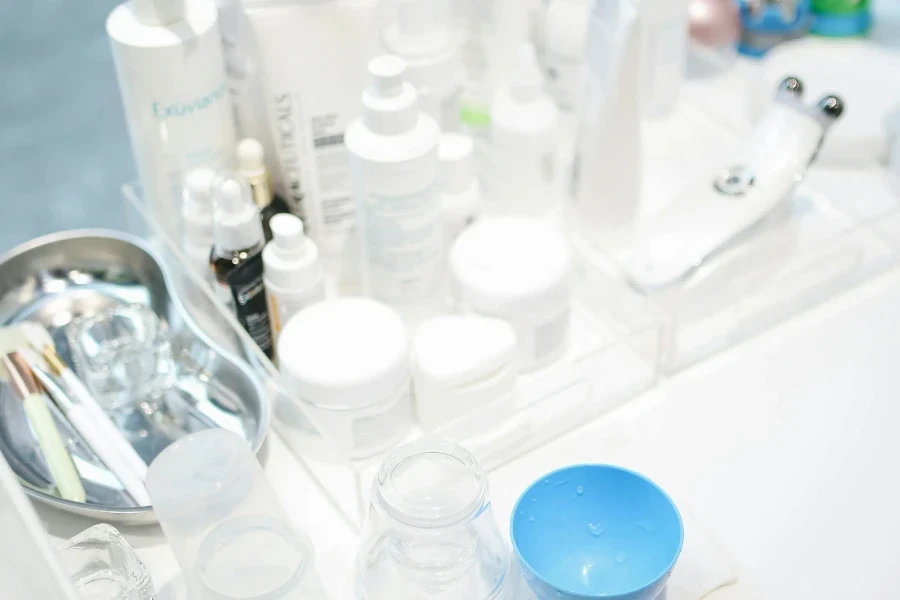In the ever-evolving world of skincare, face moisturizers for oily skin have emerged as a significant segment, catering to the unique needs of individuals with oily complexions. As the demand for specialized skincare products continues to rise, understanding the market dynamics and consumer preferences becomes crucial for businesses aiming to thrive in this competitive landscape.
Table of Contents:
Market Overview
Rising Demand for Lightweight, Non-Greasy Formulations
Increasing Popularity of Oil-Free and Mattifying Products
The Role of Advanced Technology in Product Development
Consumer Preference for Multi-Functional Products
Market Overview

Key Market Statistics and Growth Projections
The face moisturizer market has witnessed substantial growth in recent years, driven by increasing awareness of skincare and the rising demand for products tailored to specific skin types. According to a report by Research and Markets, the global face creams market size is projected to grow from $16.23 billion in 2023 to $17.88 billion in 2024, at a compound annual growth rate (CAGR) of 10.1%. This growth trajectory is expected to continue, with the market reaching $26.24 billion by 2028. The surge in demand for face moisturizers, particularly those designed for oily skin, is a testament to the growing consumer awareness and the importance placed on skincare routines.
Insights into Consumer Preferences and Behavior
Consumer preferences in the skincare market are increasingly leaning towards products that offer natural and clean ingredients. The shift towards sustainability and eco-friendly packaging is also gaining momentum. A professional report highlights that the demand for natural and organic face creams is poised to be a driving force behind market growth. Ingredients such as aloe vera, hyaluronic acid, and various natural oils are becoming popular choices among consumers. This trend is further supported by the rise in sales of Soil Association-certified natural and organic cosmetic products, which saw a 15% increase in 2021, generating significant revenue.
Moreover, the influence of social media and beauty influencers cannot be overlooked. In North America, influencers like James Charles and Jeffree Star have played a pivotal role in promoting skincare routines, emphasizing the importance of moisturization. Their reach extends beyond national boundaries, encouraging a global audience to adopt moisturizing products as essential steps in their daily skincare routines.
Competitive Landscape and Major Players
The competitive landscape of the face moisturizer market is characterized by the presence of several key players who are continuously innovating to maintain their market positions. Companies such as L’Oreal S.A., Unilever PLC, The Procter & Gamble Company, Johnson & Johnson, and The Estee Lauder Companies Inc. are at the forefront of this industry. These companies are investing heavily in research and development to introduce innovative products that cater to the evolving needs of consumers.
For instance, the introduction of encapsulation technology has revolutionized the efficacy of moisturizers. This technology involves enclosing active ingredients in microscopic capsules, ensuring their targeted delivery to the skin and protecting them from degradation. Such advancements have significantly improved the performance of moisturizers, making them more effective in providing hydration and other skin benefits.
Additionally, the market is witnessing a growing demand for multi-benefit combinations. Products that offer a variety of features or functions in one, such as foundations with added anti-aging serums or nail polish with UV protection, are gaining popularity. This trend is expected to expand, encompassing a wider range of product categories and catering to consumers looking for efficiency and convenience in their skincare routines.
In conclusion, the face moisturizer market, particularly for oily skin, is experiencing robust growth driven by consumer preferences for natural ingredients, the influence of social media, and continuous innovation by major players. As the market evolves, businesses must stay attuned to these trends and adapt their strategies to meet the ever-changing demands of consumers.
Rising Demand for Lightweight, Non-Greasy Formulations

The Shift Towards Gel-Based and Water-Based Moisturizers
In recent years, there has been a significant shift towards gel-based and water-based moisturizers, particularly for those with oily skin. These formulations are favored for their lightweight texture and quick absorption, which do not leave a greasy residue. According to a report by ResearchandMarkets, the Asia Pacific moisturizer market has seen a surge in demand for gel-based products, driven by the region’s humid climate and consumer preference for non-sticky skincare solutions. Brands like L’Oréal and Unilever have capitalized on this trend by launching products that cater specifically to these needs, such as L’Oréal’s Hydra Genius line, which features aloe water and hyaluronic acid for intense hydration without the heaviness.
Benefits of Lightweight Formulations for Oily Skin
Lightweight formulations offer numerous benefits for individuals with oily skin. They help to balance the skin’s natural oil production, reducing the likelihood of clogged pores and breakouts. Additionally, these formulations often contain ingredients that provide hydration without adding excess oil. For instance, products containing hyaluronic acid and glycerin attract moisture to the skin without contributing to oiliness. This is particularly important in regions with hot and humid climates, where heavy creams can exacerbate skin issues. The growing popularity of these formulations is evident in the increasing number of products available in the market, catering to the specific needs of oily skin.
Popular Ingredients in Non-Greasy Moisturizers
Non-greasy moisturizers often feature ingredients that provide hydration while maintaining a lightweight feel. Some of the most popular ingredients include hyaluronic acid, glycerin, and aloe vera. Hyaluronic acid is known for its ability to hold up to 1,000 times its weight in water, making it an excellent hydrating agent without adding weight to the skin. Glycerin, a humectant, draws moisture from the air into the skin, ensuring long-lasting hydration. Aloe vera, with its soothing and anti-inflammatory properties, is another common ingredient in these formulations. Brands like Neutrogena and Clinique have incorporated these ingredients into their products, offering effective solutions for oily skin.
Increasing Popularity of Oil-Free and Mattifying Products

Understanding the Need for Oil-Free Moisturizers
The need for oil-free moisturizers has become increasingly apparent as consumers seek products that provide hydration without contributing to excess oil production. Oily skin types are particularly prone to acne and breakouts, making it essential to use products that do not clog pores. According to a professional report, the demand for oil-free moisturizers has been driven by the growing awareness of the importance of maintaining a balanced skin barrier. Products like Olay’s Niacinamide + Peptide 24 Face Moisturizer have been developed to address these concerns, offering hydration and skin barrier support without the addition of oils.
Mattifying Agents and Their Role in Controlling Shine
Mattifying agents play a crucial role in controlling shine and providing a matte finish to the skin. These agents, such as silica, kaolin clay, and salicylic acid, help to absorb excess oil and reduce the appearance of pores. The use of mattifying agents is particularly beneficial for individuals with oily skin, as they help to maintain a fresh and shine-free complexion throughout the day. Brands like La Roche-Posay and Bioderma have incorporated these agents into their products, offering solutions that not only hydrate but also control oil production and shine.
Top Brands Offering Oil-Free and Mattifying Solutions
Several top brands have recognized the need for oil-free and mattifying solutions and have developed products to meet this demand. For instance, Clinique’s Dramatically Different Oil-Free Gel is a popular choice among consumers with oily skin, providing lightweight hydration and a matte finish. Similarly, Kiehl’s Ultra Facial Oil-Free Gel Cream offers long-lasting hydration without the greasy feel, making it ideal for oily and combination skin types. These brands have successfully tapped into the growing market for oil-free and mattifying products, offering effective solutions for consumers seeking to manage their oily skin.
The Role of Advanced Technology in Product Development

Innovations in Absorption and Hydration Technologies
Advanced technology has played a significant role in the development of face moisturizers for oily skin. Innovations in absorption and hydration technologies have led to the creation of products that provide deep hydration without leaving a greasy residue. Encapsulation technology, for example, allows active ingredients to be delivered directly to the skin, ensuring maximum efficacy. According to a report by WGSN, encapsulation technology has been particularly effective in improving the performance of moisturizers, allowing for the gradual release of active ingredients over time. This technology has been adopted by brands like Estée Lauder and Shiseido, enhancing the effectiveness of their products.
Smart Moisturizers: Personalized Skincare Solutions
The advent of smart moisturizers has revolutionized the skincare industry, offering personalized solutions tailored to individual skin needs. These products use advanced technology to analyze the skin’s condition and deliver customized hydration and treatment. For instance, some smart moisturizers incorporate sensors that measure the skin’s moisture levels and adjust the formulation accordingly. This personalized approach ensures that the skin receives the right amount of hydration without overloading it with unnecessary ingredients. Brands like Neutrogena and Olay have introduced smart moisturizers that cater to the specific needs of oily skin, providing targeted solutions for optimal skin health.
The Impact of Nanotechnology on Moisturizer Efficacy
Nanotechnology has significantly impacted the efficacy of moisturizers, particularly for oily skin. By using nanoparticles, active ingredients can penetrate deeper into the skin, providing more effective hydration and treatment. This technology allows for the creation of lightweight formulations that deliver powerful results without clogging pores or causing breakouts. According to a report by Research and Markets, the use of nanotechnology in skincare has led to the development of products that offer superior absorption and long-lasting hydration. Brands like L’Oréal and Estée Lauder have incorporated nanotechnology into their products, enhancing their performance and appeal to consumers with oily skin.
Consumer Preference for Multi-Functional Products

Combining Moisturization with Sun Protection
Consumers are increasingly seeking multi-functional products that offer multiple benefits in one formulation. Combining moisturization with sun protection is a prime example of this trend. Products that provide hydration while also offering SPF protection are highly sought after, as they simplify skincare routines and provide comprehensive care. According to a report by WGSN, the demand for multi-functional products has been driven by the desire for convenience and efficiency. Brands like La Roche-Posay and Neutrogena have developed moisturizers with SPF that cater to the needs of oily skin, offering hydration and sun protection in one product.
Anti-Aging Benefits in Face Moisturizers for Oily Skin
Face moisturizers that offer anti-aging benefits are also gaining popularity among consumers with oily skin. These products often contain ingredients like retinol, peptides, and antioxidants, which help to reduce the appearance of fine lines and wrinkles while providing hydration. The inclusion of anti-aging ingredients in moisturizers for oily skin addresses the dual concerns of hydration and aging, making them highly appealing to consumers. Brands like Olay and Estée Lauder have introduced products that combine these benefits, offering effective solutions for those looking to maintain youthful and hydrated skin.
The Rise of All-in-One Skincare Products
The rise of all-in-one skincare products reflects the growing consumer preference for simplicity and convenience. These products combine multiple benefits, such as hydration, sun protection, and anti-aging, into a single formulation. This trend has been driven by the desire to streamline skincare routines and reduce the number of products used. According to a report by ResearchandMarkets, the demand for all-in-one products has been particularly strong in the Asia Pacific region, where consumers value efficiency and effectiveness. Brands like Clinique and Kiehl’s have developed all-in-one moisturizers that cater to the needs of oily skin, offering comprehensive care in one product.
Wrapping Up the Future of Face Moisturizers for Oily Skin
The future of face moisturizers for oily skin is bright, with advancements in technology and a growing focus on personalized and multi-functional products. The demand for lightweight, non-greasy formulations, oil-free and mattifying solutions, and innovative technologies will continue to drive the market. Brands that can effectively address the unique needs of oily skin while offering convenience and efficacy will be well-positioned for success. As consumer preferences evolve, the skincare industry will continue to innovate, providing effective and tailored solutions for oily skin.





 Afrikaans
Afrikaans አማርኛ
አማርኛ العربية
العربية বাংলা
বাংলা Nederlands
Nederlands English
English Français
Français Deutsch
Deutsch हिन्दी
हिन्दी Bahasa Indonesia
Bahasa Indonesia Italiano
Italiano 日本語
日本語 한국어
한국어 Bahasa Melayu
Bahasa Melayu മലയാളം
മലയാളം پښتو
پښتو فارسی
فارسی Polski
Polski Português
Português Русский
Русский Español
Español Kiswahili
Kiswahili ไทย
ไทย Türkçe
Türkçe اردو
اردو Tiếng Việt
Tiếng Việt isiXhosa
isiXhosa Zulu
Zulu